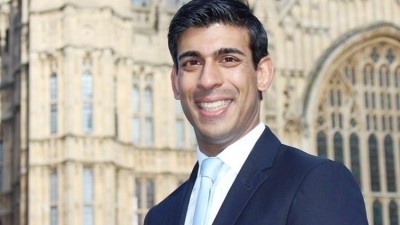‘Very disappointing’ Spring Statement delivers ‘fatal blow’ to industry

Chancellor of the Exchequer Rishi Sunak made no reference to keeping the 12.5% VAT rate permanent in his speech, which was operators’ top ask for the Spring Statement, according to a snap poll by The Morning Advertiser. This means the rate will go back to 20% in April.
Sunak announced a temporary 50% business rates relief for eligible hospitality businesses of up to £11,000 from next month, and also increased the threshold before workers start paying national insurance contributions by £3,000. However, trade bodies were overall extremely disappointed by the Statement.
As there was no mention of an expected hike in national insurance contributions that was widely reported to rise from 12% to 13.25% from April this year, pub employees would have to fork out more money to the Government once they pass the new threshold.
UKHospitality (UKH) chief executive Kate Nicholls the Statement represented a “real setback” for thousands of UK hospitality businesses still struggling with Covid’s devastating consequences while also facing a tidal wave of rising costs.
Fatal decisions
UKH had campaigned repeatedly for the Chancellor to secure the low VAT rate of 12.5%, and had spearheaded a letter urging the Government to meet this demand, which was signed by hundreds in the sector.
For many businesses, Nicholls said, the removal of the lifeline of a lower VAT rate might prove fatal. She said: “For a heavily, disproportionately taxed sector a return to 20% dashes the hopes that many businesses could begin to recoup some of the losses of the last two years.
“Operators in the sector – large and small – have several hurdles to clear on the road to recovery: huge accumulated debts; unprecedented rising costs for energy and raw goods; a chronic shortage of staff; and a fundamentally unfair and crippling business rates regime we’re desperate to see reformed.
“Locking in VAT at 12.5% would have given hospitality businesses a major boost, and helped the sector in its ambition to lead the UK back to post-Covid prosperity.
“As it is, thousands of jobs could be lost, the UK will remain uncompetitive versus international rivals, and already hard-pressed consumers in the midst of a cost-of-living crisis will see price rises in their favourite pubs, bars and restaurants, further fuelling inflation.”
Increasing VAT on hospitality to 20% while energy and food bills are at record highs will see today’s inflation figures soar & is a huge missed opportunity to ease those pressures across the economy & accelerate growth and recovery #SpringStatement2022
— Kate Nicholls (@UKHospKate) March 23, 2022
Urgent action needed
The British Institute of Innkeeping (BII) chief executive Steve Alton also believed the sector deserved and needed much more support than what was laid out in the Statement. He commented: “We have consistently made the case for ongoing investment in our key sector, operating in every community, being at the heart of levelling up across the UK. The lack of ongoing support is a further significant and potentially fatal blow to these businesses.”
Tom Stainer, the chief executive of the Campaign for Real Ale (CAMRA), made the point that with household disposable incomes set to fall by the biggest ever rate, there would be a dent in consumer spending, meaning pubs, clubs and breweries would take a hit.
The Chancellor’s announcement, which contained little new support for pubs or brewers, came at a time the industry “urgently needed action” to save local pubs, according to Stainer.
In response to the Chancellor’s Spring Statement today, please find the below comment from Tom Stainer, Chief Executive of the Campaign for Real Ale.
— CAMRA (@CAMRA_Official) March 23, 2022
Read on our website: https://t.co/hjWkLfiZozpic.twitter.com/YpXSoYk7B1
This was a viewpoint echoed by the Night Time Industries (NTIA) chief executive Michael Kill, who believed the Statement lacked the support the sector needed to fully recover from the pandemic and cost of living crisis.
He warned the sector was due to face a “perfect storm of challenges” over the next 12 months, including debt hangovers from the pandemic, soaring cost inflation and the fact nightlife continues to trade below pre-pandemic levels.
Missed opportunity
“It is for all these reasons that we called on the Chancellor before the Spring Statement to produce a package that included an extension of VAT and business rates reliefs, a cancellation of the proposed National Insurance hike, and action on businesses energy bills and fuel duty, to allow the sector financial headroom to survive in something resembling its pre-pandemic form. It is very disappointing that today he took none of these steps," Kill concluded.
For Alan Thomas, UK chief executive at Simply Business, one of the UK’s largest providers of small business insurance, the Statement was a “missed opportunity” for Sunak to put small businesses at the heart of collective recovery.
“Lowering fuel duty and increasing the employment allowance is a welcome start for small business owners, but the fact is many are at breaking point – feeling the crippling pressure of rising costs, staff shortages and supply chain issues,” he said.
He added: “Put simply, the government must act. For the sake of six million UK small businesses, it’s essential that they ease the pressure on struggling self-employed people, in turn helping our communities – and the economy at large – bounce back.”






